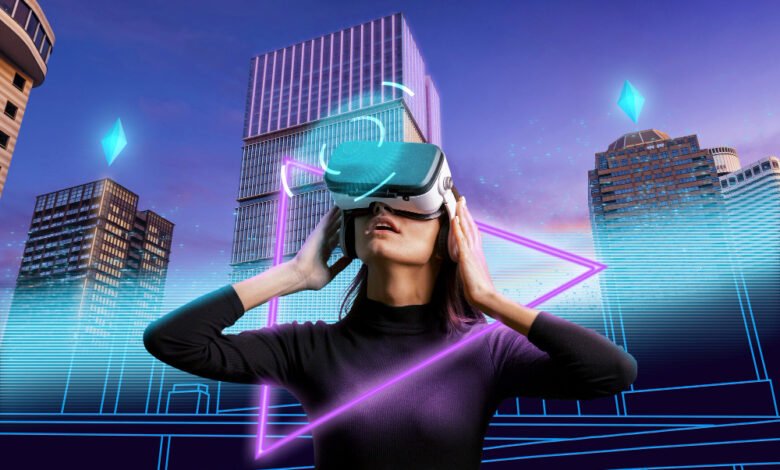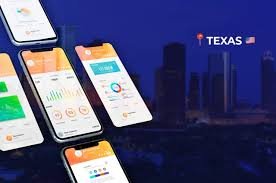
The Metaverse is no longer just a buzzword. It’s becoming a reality, changing the way people interact, work, and play in digital spaces. Alongside this evolution, metaverse token development is paving the way for a new class of digital assets. Understanding these tokens and how they work is crucial as they reshape the digital economy, offering vast potential for innovation, investment, and digital ownership.
What Is the Metaverse?
The Metaverse is a virtual space where people can interact through digital avatars, exploring 3D environments and engaging in various activities. Think of it as the next level of the internet—an immersive experience rather than just information on a screen. The Metaverse brings together virtual reality, augmented reality, and blockchain technology to create these spaces.
Why Blockchain Matters in the Metaverse
Blockchain is foundational in the Metaverse because it provides:
- Ownership: Users can own digital assets, such as land, avatars, and items, verified by blockchain.
- Transparency: All transactions in the Metaverse are recorded on a public ledger.
- Security: Blockchain secures digital assets, making them safe from duplication or theft.
What Are Metaverse Tokens?
Metaverse tokens are digital assets created on blockchain networks that enable users to buy, sell, and interact within the Metaverse. They often represent virtual goods, services, or even currencies in these digital spaces. With the surge in crypto token development, metaverse tokens are becoming integral to the growth and sustainability of virtual worlds.
Types of Metaverse Tokens
- Utility Tokens: Used for transactions within the Metaverse. For example, in games, users might use utility tokens to buy skins or weapons.
- Governance Tokens: Allow users to vote on platform changes and make collective decisions about the future of the Metaverse.
- NFTs (Non-Fungible Tokens): Represent unique digital items like art, virtual land, or avatars, ensuring ownership and rarity.
- Asset-Backed Tokens: Represent real-world assets, like real estate or company shares, within the Metaverse.
How Metaverse Tokens Work
Metaverse tokens work similarly to other blockchain tokens but are designed for specific digital spaces. Here’s a closer look:
1. Token Creation
- Tokens are created using smart contracts on existing blockchains, often Ethereum or Binance Smart Chain.
- They can be programmed for various functions, from simple transactions to complex interactions within virtual worlds.
2. Ownership and Transfer
- Metaverse tokens are stored in digital wallets, giving users full control over their assets.
- Ownership of tokens is verifiable on the blockchain, making it easy to buy, sell, or trade them in marketplaces.
3. Interoperability
- Metaverse tokens can often be used across different platforms within the Metaverse, expanding their utility.
- They enable users to bring digital assets from one virtual world to another, creating a seamless experience across platforms.
The Role of Crypto Token Development in the Metaverse
Crypto token development plays a central role in building and maintaining the Metaverse. With the right tokens, users can interact with virtual worlds in more meaningful ways. Let’s explore how token development shapes the Metaverse.
Creating Digital Economies
Tokens enable economic activities within virtual spaces, such as buying and selling goods, services, and digital real estate. These economies mirror real-world systems, allowing users to:
- Earn Income: Users can earn tokens by creating or selling digital goods.
- Invest: People can invest in virtual land or assets and earn returns as these items increase in value.
- Trade: Like traditional markets, users can buy, sell, and trade tokens, creating liquidity in the Metaverse economy.
Powering Decentralized Communities
Governance tokens empower users, allowing them to participate in decision-making processes. In the Metaverse, this could mean:
- Voting on new features or changes to a virtual world.
- Deciding how funds are allocated within the platform.
- Contributing to the direction of the Metaverse itself.
Real-World Applications of Metaverse Tokens
As metaverse token development continues, various projects are emerging with real-world applications, expanding the possibilities for digital assets. Here are a few examples:
1. Virtual Real Estate
- Platforms like Decentraland and The Sandbox allow users to buy, sell, and build on virtual land.
- These land parcels are represented by NFTs, making them unique and verifiable on the blockchain.
- People and companies are investing in virtual real estate to host events, create businesses, or simply own digital property.
2. Gaming
- Games within the Metaverse use utility tokens to create engaging experiences. Players can buy in-game assets like weapons, characters, or skins.
- Some games even let players earn tokens through gameplay, which they can sell or trade.
- Examples include Axie Infinity, where players earn tokens as rewards, creating a play-to-earn ecosystem.
3. Art and Collectibles
- NFTs have transformed digital art, allowing artists to sell their work in the Metaverse.
- Users can buy, own, and display these art pieces in virtual galleries.
- Collectable NFTs include items like trading cards, rare objects, and one-of-a-kind digital creations, all tradable on marketplaces like OpenSea.
Advantages of Metaverse Tokens
Metaverse tokens come with several advantages that make them valuable within digital spaces. Let’s break down a few:
Enhanced Ownership
- Tokens allow true ownership of digital assets, empowering users to control and transfer these items.
- The blockchain ledger makes it easy to verify ownership and trace asset history, enhancing trust.
Flexibility and Interoperability
- Metaverse tokens can often be used across different platforms, enhancing user experience.
- This interoperability expands the utility of tokens, allowing users to move assets seamlessly between virtual worlds.
Decentralization
- Tokens enable decentralized management, as users can contribute to decisions within the Metaverse.
- This creates a more inclusive ecosystem, where users have a say in how platforms operate and evolve.
Challenges in Metaverse Token Development
While metaverse tokens offer exciting possibilities, they come with challenges. Here are some of the main issues developers and users face:
Scalability
- Many popular blockchains struggle with scalability, leading to high fees and slow transactions.
- Projects need to consider Layer 2 solutions or alternative blockchains to avoid congestion and ensure smooth transactions.
Security Risks
- Token contracts need to be carefully coded and audited to avoid vulnerabilities.
- Hacking and fraud are real threats in the digital space, so security measures are critical.
Regulation
- The regulatory landscape for tokens is still evolving, especially for asset-backed and security tokens.
- Projects must navigate compliance requirements, which vary by region and token type.
Future of Metaverse Token Development
Metaverse token development is just getting started. As the Metaverse continues to grow, tokens will play an even bigger role, with potential developments including:
Advanced Use Cases
- Expect to see tokens representing real-world assets like property, stocks, and commodities in virtual environments.
- People will likely invest in and manage these assets in the Metaverse, bringing new levels of economic activity.
Improved Interoperability
- As different platforms within the Metaverse align, tokens will move more freely across spaces.
- This will create a cohesive digital experience, where users can transfer assets seamlessly between worlds.
Integration with Decentralized Finance (DeFi)
- Metaverse tokens are expected to merge with DeFi, allowing users to lend, borrow, or earn interest on their digital assets.
- Imagine earning passive income from virtual real estate or staking governance tokens within the Metaverse.
Conclusion:
Metaverse token development is at the forefront of the digital asset revolution. These tokens represent more than just a trend—they’re reshaping how people own, interact, and transact in digital spaces. From virtual land and play-to-earn games to decentralized governance and financial services, the potential of metaverse tokens is vast.
As crypto token development company continues to advance, the Metaverse will become more accessible, secure, and engaging for users worldwide. Whether you’re a developer, investor, or enthusiast, metaverse tokens offer a new way to participate in the digital economy and unlock opportunities that didn’t exist before.
Stay tuned as the Metaverse evolves. The journey is just beginning, and with metaverse token development paving the way, the future of digital assets looks promising.



